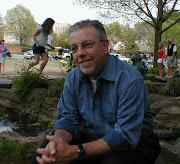Why can't we all just get along?
Several people have asked this question lately and it does seem to be a cause of frustration for many. There are so many examples where countries cannot get along with other countries; denominations cannot get along with other denominations; citizens cannot get along with their governing officials; church members cannot get along with other church members or their pastors. What is most alarming is that, often, the reasons that these peoples and groups do not get along is based either in falsehood, misrepresentation, or simply faulty memories. But, it doesn't matter why they aren't getting along…What matters is only that each side is "absolutely right" and the other side is "absolutely wrong" and no one is interested in dialogue or compromise. It begs me to ask: "When did we get to be such mean people? When did we all become so convinced of our own importance and the insignificance of another point of view? When did it become acceptable to tell lies and half-truths to make your point? When did gossip become truth?"
I have recently encountered a situation where a particular individual faced some resistance in accomplishing a particular task. The source of the resistance seemed to be a misunderstanding between a few people and an honest mistake made by another individual. Even when the mistake was acknowledged and rectified, the first individual felt the need to continue to stir the pot, as it were. This person spent a lot of time contacting other persons in the organization to say that the one who had made the mistake had deliberately done so in an effort to undermine the whole organization. Of course this was not true, but it sounded true in the context of the gossip being spread. Before long many people were angry and anxious to remove the offending person from the group. Others defended the contrite offender and threatened to leave the organization if the others didn't stop the gossip. In short, a split developed along the lines of loyalties on both sides. The sad part is that the whole incident was based on half-truth, misunderstanding, and unfounded gossip; it could have been avoided if the parties had been willing to engage in civilized and productive dialogue. Instead, people on both sides are now not speaking to the other side and discomfort hangs in the air.
I am also aware of another situation where resistance to change and the struggle for undeserved power has caused an otherwise "Christian" organization to stand at the edge of a precipice leading to a split. Certainly most of us could cite a similar example.
My point here is that Jesus called his people to love God first and then to love everyone else. God's kingdom is filled with diversity of opinions just as it is filled with diversity of races, colors, creeds, and cultures. Diversity is God's good creative design; it is not an accident. Diversity is a gift from God that causes us to broaden our perspective and learn to get along with many different people. Diversity is the creative genius of a God who loves and cares for all of the peoples God created. Next time, before you get angry or argue with another person or dig your heels in the midst of conflict, ask yourself: "Why CAN'T we all just get along?"
Shalom!
Pastor Don





